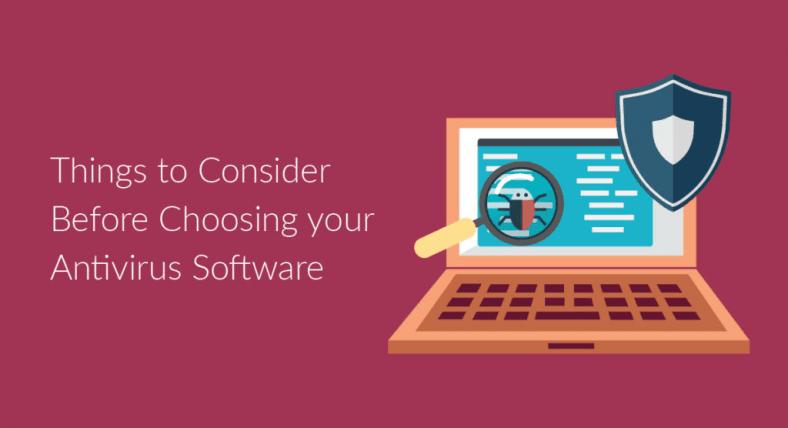Whether you're using a Windows PC or a Mac, a tablet or a phone, one thing is for sure: The internet is pretty scary these days. There are plenty of hackers out there who are probing for opportunities to break in and steal your personal information, turn your device into a slave on a botnet, or encrypt your drive and hold it for ransom. Computer users worldwide suffered 2.3 trillion intrusion attempts in the first half of 2020 alone, according to a report by cybersecurity firm SonicWall. That's a 19 percent jump over the same period the previous year.
That's why it's important to make sure that your internet-connected devices are protected by antivirus software. A 2020 survey commissioned by antivirus software firm Webroot found that 83 percent of Americans have installed such programs.
With at least several dozen antivirus products on the market, including TotalAV antivirus software, you may be wondering which one you should choose. There's no simple one-size-fits-all answer, but here are five things to consider before making your decision.
1. Do You Want Cloud Antivirus?
Unlike conventional antivirus software, cloud antivirus programs do most of their processing on the internet rather than your computer's hard drive. Cloud antivirus programs not only have a smaller resource footprint, but they also can be quicker to respond to newly emerging malware threats, and don't necessarily have to rely on manual or scheduled downloads of malware signatures to protect your machines. One cloud antivirus suite that offers an array of features is TotalAV, which is available for multiple platforms and includes protection against threats ranging from ransomware to adware, in addition to precautions such as checking executable files for viruses whenever your computer tries to run them.

2. What Sort of Device and Operating System Are You Protecting?
One obvious point is you need a program that's compatible with your device's operating system. This isn't as much of an issue as it once was, since many antivirus software makers offer their products for multiple platforms. For example, AVG Antivirus, which comes in both a free and a more full-featured paid version, is available in PC, Mac, Android and iOS (for iPhones and iPads) versions. Another consideration is how much memory and storage space your device has, since antivirus programs sometimes can hog resources. If you need a product that uses resources lightly, PC Magazine praises Webroot SecureAnywhere Antivirus for that quality.
3. What's Your Price Point?
If you're on a tight budget and aren't a heavy-duty computer user, you may be able to get by with using one of the numerous free antivirus programs that are available. If you've got a Windows PC, the absolute simplest, cheapest move is simply to activate Windows Defender Antivirus, the security app that comes with the Windows 10 operating system. Another popular choice is Avast Free Antivirus, which has earned high ratings from security researchers and is available for Windows, Mac, Android and iOS devices. But if you can afford it, the paid versions of the free programs often haver more features, and spending a few dollars for a security suite such as Bitdefender Total Security will provide far more elaborate defenses, such as file shredding and protection for webcams and microphones. Typically, as Consumer Reports notes, after you buy antivirus software, you'll pay an additional fee each year to renew the service.
4. What Sort of Security Risks Do You Face, and How Much Protection Do You Need?
If you're mostly just using your computer to write emails and watch movies on Netflix, then most of the elaborate bells and whistles on a full-featured security suite probably would go to waste. If you're roaming the web more extensively or running a home e-commerce business, you may find that premium features in a paid program are well worth the money. The website for GDATA Antivirus, for example, notes that the program includes technology specifically designed to thwart "drive-by infections " from malicious code planted on websites—a major risk these days. Norton 360 with LifeLock Select is a suite that includes a host of anti-hacking features—such as specially designed protection for children doing remote learning—with cloud file backup, a virtual private network (VPN), and various features designed to protect your identity and personal data. (As Tom's Guide describes it, the Norton suite has "everything but the kitchen sink.")
5. How Tech Savvy Are You?
If you're a person who finds technology overwhelming, you'll probably feel most comfortable with a program that's easier to use. Trend Micro Antivirus + Security, whose slogan is "Simple protection against complex threats," was lauded by an Investopedia reviewer for its user-friendly dashboard controls.
But no matter which antivirus program you pick, online security expert Bruce Schneier says the most important thing is that you install one, and set it to automatically update. "The security improvement that comes from having vs not having one is much greater than the difference between them," he explains.
HowStuffWorks may earn a small commission from affiliate links in this article.
Now That's InterestingOne of the earliest viruses to infect computers, 1982's Elk Cloner, wasn't intended to be malicious, and included a six-line humorous poem, according to PC Magazine.








